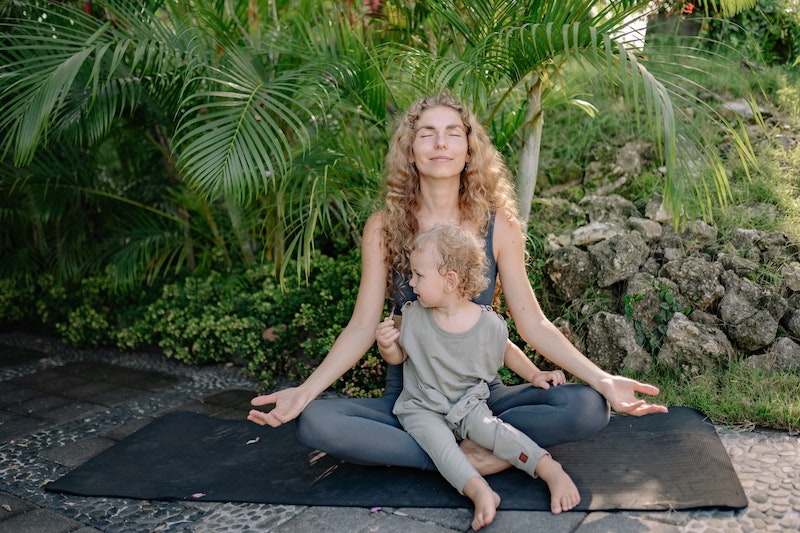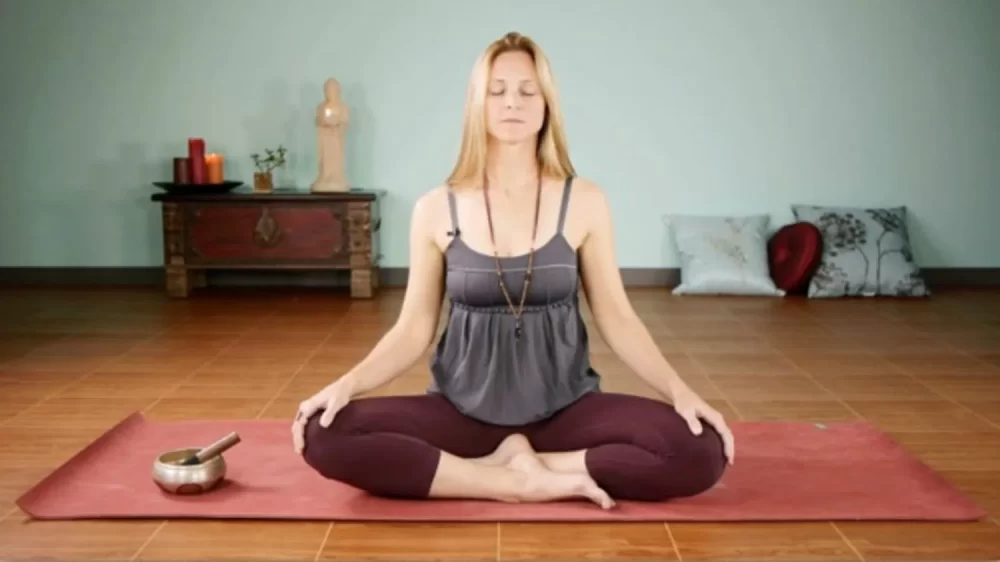Are you feeling overwhelmed, stressed out, or simply disconnected from the present moment? Do you struggle to find balance in your daily routine and often feel like life is passing by too quickly? If so, then cultivating a mindful lifestyle could be just what you need. In this blog post, we’ll explore the benefits of mindfulness and share practical tips on how to incorporate it into your everyday life with the help of https://youtu.be/ecvfslhs_wa. Get ready to unlock a new level of inner peace and live more fully in the present moment.
Table of Contents
What is mindfulness and how does it help us live a healthier lifestyle?

Mindfulness is a form of meditation that helps people live healthier lifestyles by paying attention to their surroundings and thoughts. The goal of mindfulness is to live in the present moment and focus on your feelings, thoughts, and bodily sensations.
There are many different ways to practice mindfulness, but some popular exercises include focusing on your breath, sitting in silence, and observing your body in everyday activities. By practicing mindfulness every day, you can help reduce stress levels, improve your concentration, and increase your awareness of your surroundings.
If you’re interested in learning more about how to cultivate a mindful lifestyle, check out https://youtu.be/ecvfslhs_wa or our blog post entitled “How to Cultivate a Mindful Lifestyle.”
How do we cultivate a mindful lifestyle?
We all experience stress in our lives, but too often we let it take control. If you’re looking to cultivate a mindful lifestyle, here are some tips to get started:
1. Start with one thing. When you’re feeling stressed, it can be hard to break the cycle of negative thinking. One way to start is by focusing on one task at a time and letting go of the rest. This will help you stay focused and avoid getting overwhelmed.
2. Exercise regularly. Studies have shown that exercise can help reduce stress levels and improve moods. Not only does exercise release endorphins, but it also helps increase serotonin levels, which can promote relaxation. Considering starting your day with a gentle walk or workout?
3. Connect with others. Social connection has been shown to have a positive impact on mental health and well-being, including reducing stress levels. Find friends who share your interests and connect with them online or in person. Make time for family and social events as well – they’re a great way to build relationships and de-stress!
4. Take breaks throughout the day. When you’re stressed out, it’s easy to feel like you can’t take any breaks whatsoever. However, taking short breaks every few hours will help you refresh and reset your brain for the next challenge ahead.”
How can mindfulness help us live a happier life?
Mindfulness is an effective way to reduce stress and anxiety, improve focus and concentration, and increase happiness. Mindfulness can have such a positive impact on our lives that it has been dubbed “the missing link” in the treatment of chronic diseases. Here are five ways mindfulness can help you live a happier life:
1. Mindfulness can help reduce stress and anxiety. According to a study published in The Journal of Positive Psychology, people who practiced mindfulness showed reductions in both their stress levels and their cortisol levels. Cortisol is a hormone that is associated with stress reactions.
2. Mindfulness can improve focus and concentration. When we’re stressed, our thoughts tend to wander off course. Mindfulness helps us stay focused by teaching us how to pay attention to our present moment experience without getting caught up in negative thoughts or emotions.
3. Mindfulness can increase happiness. Numerous studies have found that practicing mindfulness leads to increased happiness levels overall, as well as improved physical health outcomes such as reduced inflammation and pain symptoms.
4. Mindfulness can help us live healthier lives overall. By improving our focus and concentration, mindfulness also allows us to better manage our time and resources more effectively which could lead to healthier eating habits, regular exercise, and less exposure to harmful toxins.
5. Finally, the mindful practice has the potential to change not only how we feel mentally but also physically – translating into longer-term improvements
What is mindfulness?
Mindfulness is a mental state characterized by heightened attention and awareness. It can be thought of as the ability to stay present at the moment, without judgment or reactivity. When practiced regularly, mindfulness can help you focus on your thoughts and feelings, which can lead to better emotional control and productivity.
There’s no one right way to practice mindfulness; you can do it anywhere and at any time. The most important thing is to be patient with yourself—the process won’t happen overnight. Here are some tips to get started:
1. Start with simple exercises. The first step is simply making an effort to pay attention differently. Try focusing on your breath for a few minutes each day, or counting your heartbeats as you sit down to relax. These simple changes will help you get started practicing mindfulness more effectively.
2. Be patient with yourself. Don’t expect too much from yourself at first—just try small things that make you more mindful throughout the day. Over time, you can gradually increase the intensity and duration of your practice as you become more comfortable with it
3. Connect with others who practice mindfulness. Finding like-minded people who will support and encourage you along the way is essential for success with mindfulness practices
The Benefits of Mindfulness

Mindfulness can be defined as a way of living in the present moment, being aware of and focusing on what’s happening around you. This mindfulness practice has been shown to have a variety of benefits, including reducing stress, promoting happiness, improving mental health, and reducing inflammation. Here are four key reasons why you should start practicing mindfulness:
1. Reducing Stress
One of the primary benefits of mindfulness is that it can reduce stress levels. When you’re constantly focused on your thoughts and feelings, it becomes easier to deal with stressful situations calmly and thoughtfully. Mindfulness can also help you develop better stress management habits, which will help reduce your overall stress levels over time.
2. Promoting Happiness
Another benefit of mindfulness is that it can promote overall happiness. When you’re regularly focused on positive thoughts and experiences, it becomes much easier to be happy in your everyday life. Mindfulness can also help you gain a greater understanding of happiness (and how to find it), which can lead to lasting happiness gains.
3. Improving Mental Health
Mindfulness is effective in treating conditions like anxiety and depression. When you’re able to focus on your thoughts and feelings without judgment, it often leads to improved mental health outcomes. Mindfulness also helps improve self-awareness and insight into your emotions, which can lead to more successful coping mechanisms in the future.
4. Reducing Inflammation
One of the main benefits
How to Start Practicing Mindfulness
How to Start Practicing Mindfulness
The practice of mindfulness is helpful in a variety of areas, including stress management, increasing focus and concentration, improving sleep quality, and reducing anxiety. In this article, we will outline how to start practicing mindfulness, including steps for beginners and more experienced practitioners.
First and foremost, it is important to remember that mindfulness is not a religious or spiritual practice – it can be enjoyed by anyone regardless of their beliefs or background. There are many different ways to begin practicing mindfulness, and the following steps are designed for both beginners and those who have practiced before but want to take their practice further.
1) Bring awareness to your current environment. When you first start practicing mindfulness, it is important to become aware of your surroundings – what you see around you, the sounds you hear, and the smells you sense. This may feel awkward at first, but with time it will become easier as you get used to paying more attention to your surroundings.
2) Notice your thoughts and emotions. Once you have become aware of your environment and your thoughts and emotions, it is now time to pay attention to the feeling that accompanies each one. What do your thoughts feel like? How do your emotions make you feel? Note everything down so that you can refer back to it later on when needed.
3) Engage in simple activities mindfully. Once you have become familiar with all of your thoughts and emotions, it is time
Tips for Cultivating a Mindful Lifestyle
This blog post aims to provide tips on how to cultivate a mindful lifestyle. Mindfulness has been defined as the ability to be present at the moment, and it can be a great way to manage stress, improve your concentration, and increase your productivity.
There are many ways to practice mindfulness, but one approach is to start with exercises that focus on your senses. For example, you can practice focusing on your breath or listening to your body. Once you’re comfortable with these activities, you can move on to mindfulness meditation.
Mindfulness meditation is a Technique that was originally developed in Asia for people who were struggling with mental health issues. It involves focusing on your breathing and clearing your mind of all thoughts. You can do this practice seated or standing, and you can do it for as long or as short a time as you like.
One final tip for cultivating a mindful lifestyle is to be patient. Mindfulness takes time to develop and there’s no guarantee that you’ll see immediate results. However, if you stick with it, over time you’ll likely notice improvements in your mood and stress levels.
Tips for Dealing with Stress
Stress is a universal experience that everyone experiences at some point in their lives. It can be caused by a variety of events and situations, but it’s always best to deal with it healthily. Here are some tips for reducing stress:
1. Make sure you have enough sleep. A lot of stress can be attributed to not getting enough sleep, so make sure you’re getting at least seven hours per night. This will help your body to recharge and reduce the number of stress hormones that are released throughout the day.
2. Exercise regularly. Studies have shown that exercise has a positive impact on reducing stress levels. Not only does it release endorphins which can provide temporary relief from pain, but it also helps improve your mood and reduces anxiety levels.
3. Eat a balanced diet. It’s important to make sure you’re eating plenty of nutrients and vitamins so your body can function at its best under stressful conditions. Try to eat foods high in antioxidants, magnesium, omega-3 fatty acids, and fiber as they all play an important role in reducing stress levels.*
4. Connect with loved ones regularly. When we’re stressed, it’s easy to avoid interacting with people we care about because we don’t feel like we have anything good to say or share. Try to make time for quality conversations with those who mean the most to you – whether that’s your family, friends, or Significant Other.)
5。 Get active mentally
How to Meditate

How to Meditate
To cultivate a mindful lifestyle, it is important to understand the basics of meditation. Meditation is the practice of focusing your attention on one specific object or thought. You can do this by sitting in a comfortable position with your eyes closed, or by using some type of mantra or repetitive phrase to focus your mind.
There are many different types of meditation, but the most common is called mindfulness meditation. Mindfulness meditation simply means paying attention in the present moment. When you’re practicing mindfulness, you should try to live in the present and focus on what’s happening around you. This can be difficult at first, but over time it will become more natural and easier to stay focused.
Another way to relax and de-stress is yoga. Yoga is a form of exercise that combines stretching and breathing exercises with relaxation techniques. It has been proven to help improve balance and flexibility, as well as reduce stress levels. There are many different styles of yoga, so find one that appeals to you and start practicing regularly!
Tips for Living a Balanced Life
Tips for Living a Balanced Life:
1. Take time for yourself every day. Make sure to schedule some time for yourself, whether that’s reading, going for a walk, catching up on your favorite podcast, or spending time on your hobbies and interests.
2. Be mindful of your thoughts and feelings. When you catch yourself ruminating on negative or stressful thoughts, try to challenge those thoughts and instead focus on taking note of your body sensations (e.g., how your stomach feels when you’re anxious) or observing the environment around you (e.g., noticing the beauty in nature).
3. Practice self-compassion. When we find ourselves feeling overwhelmed or upset, it can be helpful to take a few minutes and tell ourselves that we are not alone in this experience and that there are many things we can do to manage our emotions more effectively. This can help us feel more connected to ourselves and motivated to continue working towards balance in our lives.
4. Seek out support from family, friends, and other loved ones. It can be helpful to talk about any challenges or struggles we’re facing so that we can get advice and support from people who care about us best. Additionally, think about ways you can volunteer or contribute to causes that matter to you outside of your personal life – doing something that makes you happy may provide important balance in your life too!
Conclusion
In today’s fast-paced world, it is more important than ever to cultivate a mindful lifestyle. When we are constantly on the go and multitasking, it can be hard to take time for ourselves and focus on our well-being. But by practicing mindfulness, we can learn to live in the present moment and focus on what is important in our lives. In this short video clip from youtu.be/ecvfslhs_wa, they explain how you can start practicing mindfulness right now and see the benefits for yourself. If you want to create a happier, healthier life that is centered around you, embracing a mindful lifestyle may be the answer!



